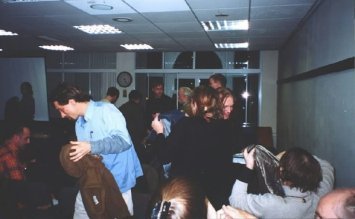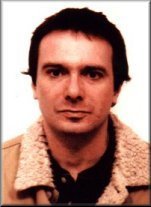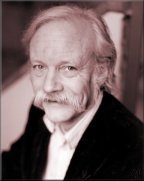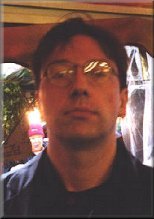Copyright © 2002, Patrick K. Kroupa
All Rights Reserved

Original Publication: Heroin Times
In the January issue of Heroin Times, I provided a brief summary of the topics which were covered at the second ibogaine conference in the U.K, which was held on December 12th 2001. This article provides a slightly more in-depth look at the issues which presently surround ibogaine and the barriers it faces on the road to becoming an accepted modality for treating drug-dependence.

Nick Sandberg
The first speaker was also one of the organizers of the event: Nick Sandberg.
Nick’s introductory paper covered the origins of ibogaine, an indole alkaloid found in the root of Tabernanthe iboga (Apocynaceae family), a shrub that grows in West Central Africa. It is used by native peoples in low doses to combat fatigue, hunger and thirst, and at higher doses for its psychoactive properties as part of initiation rituals in the Bwiti religion. Ibogaine has been claimed by members of American and European addict self-help groups to promote long-term drug abstinence from addictive substances, including cocaine, nicotine, alcohol, but especially opiates and opioids, wherein it appears to provide most individuals with a pain-free detox.
After the introduction, Nick talked about his personal experiences in interacting with individuals who had dosed with ibogaine in the hopes of breaking out of their pattern of drug dependence.
He stressed the importance of having basic health assessments done prior to using ibogaine, in particular heart and liver function, and observed that it was relatively rare for an individual to stay free of drugs after a single administration of ibogaine; many people required 2 or 3 doses before they were able to sustain a drug-free existence.
He concluded that ibogaine was most effective when used concomitantly with some form of aftercare or therapy.

Dana Beal
Dana Beal presented on the history of ibogaine as it pertains to drug addiction, starting with Howard Lotsof’s personal experience using ibogaine as a recreational drug, and accidentally discovering its anti-addictive qualities, moving through the timeline of attempting to develop ibogaine into a medicine for the use of treating addiction.
An interesting comparison Dana made is contrasting the ibogaine believers, with the 12-step movement, and listing three basic commonalities to be found within both groups.
- Group cohesiveness.
- A shared belief system.
- Culminating in an altered state of consciousness which allows the believers to construct a new belief system upon which to base their lives.
In short, the opportunity to re-write your own mythology.
Dana concluded with covering the various possible modes of action that ibogaine may take, and presented and contrasted the theories of Dr. Mash, Popik and Glick, working up to the general conclusion that at the present point in time, we really do not know WHY ibogaine works.
Whatever the specific mechanisms of action turn out to be on a molecular level, what ibogaine appears to do is hit a reset on pseudo irreversible neuroadaptions brought about by chronic, long-term drug addiction.

Patrick K. Kroupa
Patrick Kroupa … Uhm, that’s me.
I gave an extended version of the heroin world tour, and my personal experiences with using ibogaine to kick dope. While people presenting objective data based upon scientific study have to carefully word what they’re saying; I am operating under no such burden.
I’ve spent most of my life chipping heroin, and nearly a decade completely sprung, with a series of killer habits which were never interrupted for very long with any other treatment modality.
I think the record for my clean time prior to dosing with ibogaine was maybe 3 weeks at best, and that’s stretching it… In short, none of it ever worked for me. Ibogaine did.
As of right now, I have a little over 2.5 years clean off heroin. I have nothing to sell and have never made .5 cents from ibogaine.
I simply happen to believe in it, having been at the receiving end of all the other crap which presently passes for “treatment” of heroin addiction.
(Presenting for Deborah Mash, Ph.D.)

John Pablo
Dr. Pablo presented data from Dr. Deborah Mash’s Ibogaine Research Project, and the current published results, which are based on roughly 250 drug-dependent individuals who have detoxed using ibogaine at the Healing Visions clinic at St. Kitts.
Drug dependence results from interrelated neuroadaptations which underlie tolerance, sensitization, and withdrawal.
The apparent long-term ability of ibogaine to address a variety of these changes after single dose administration is thought to be due in part to its long-acting metabolite noribogaine.
Unlike ibogaine which is cleared from the blood relatively rapidly, noribogaine remains in the system for a period of time ranging from weeks, to several months.
Providing people with a window of opportunity during which they have the chance to establish or re-establish patters of behavior which are conducive to maintaining a drug-free existence.
Additional speakers included Brian Marciano and Roman Paskulin, who recounted anecdotal experiences with treating drug-dependent individuals using ibogaine in the Czech Republic and Slovenia.
Ibogaine is NOT a “cure” for drug addiction. It will not fix everything and somehow make it different. It does not work for everyone, and it can take multiple doses of ibogaine for even a highly motivated individual to break out of their cycle of drug dependence.
All that being said, it’s better than anything else that presently exists.




